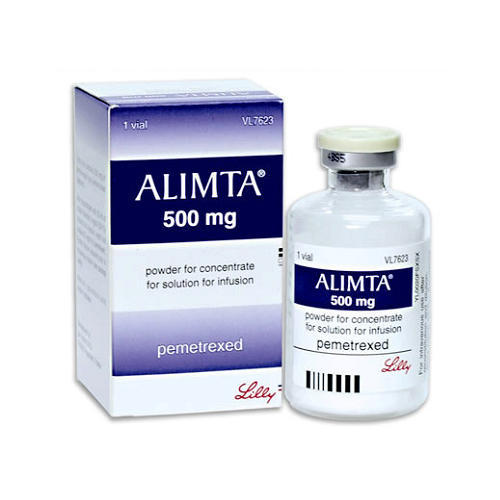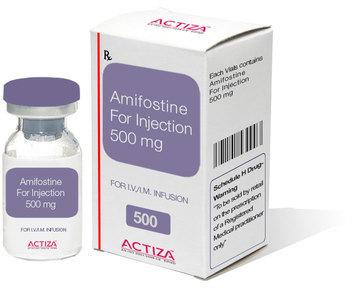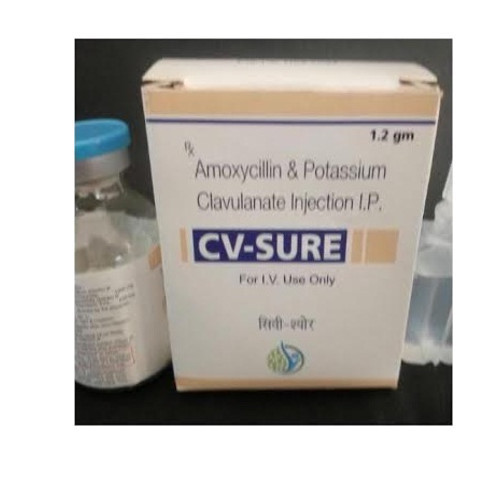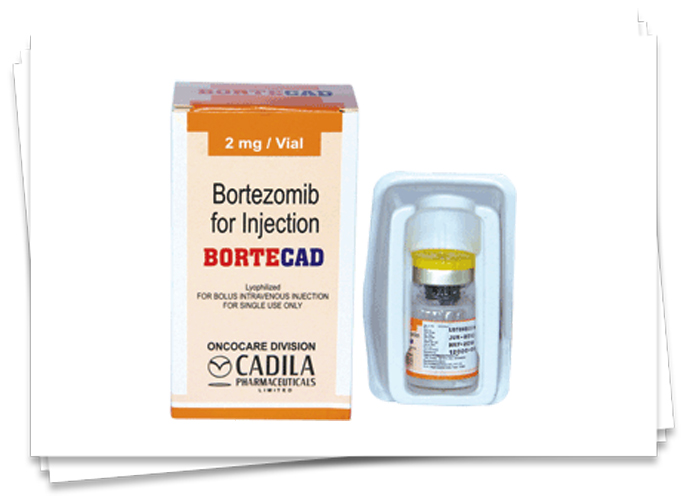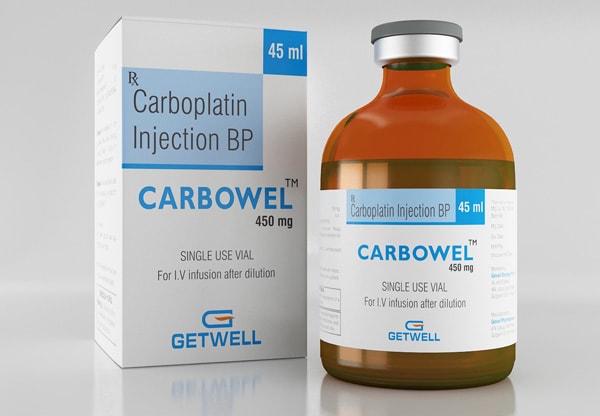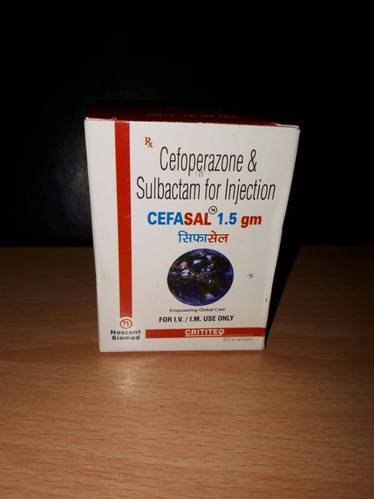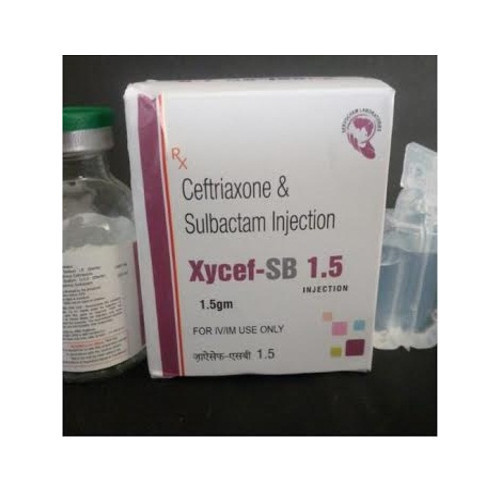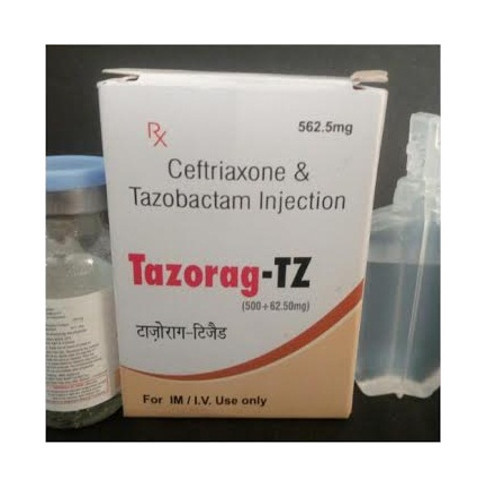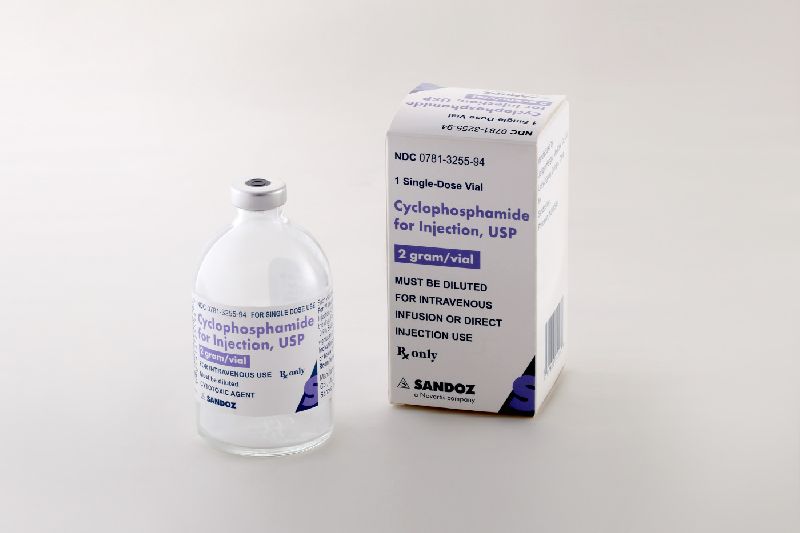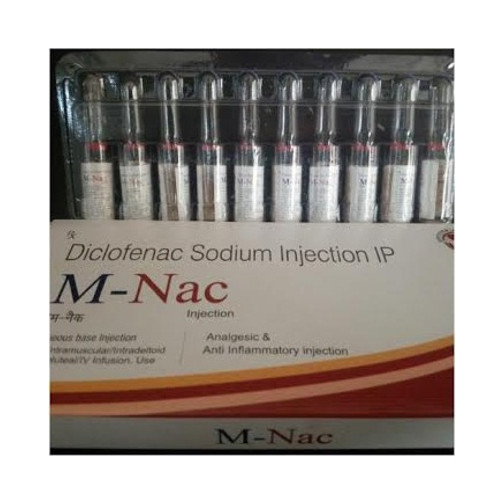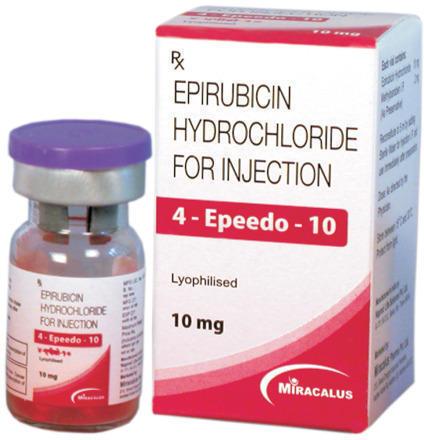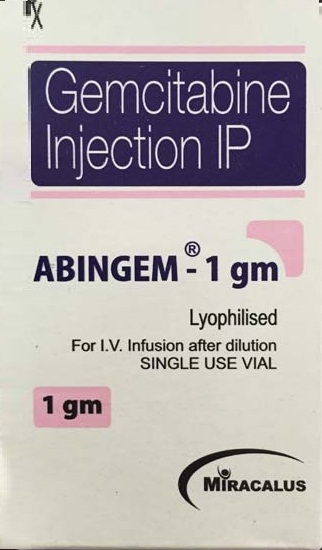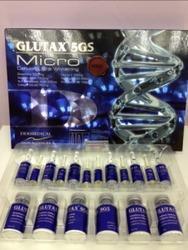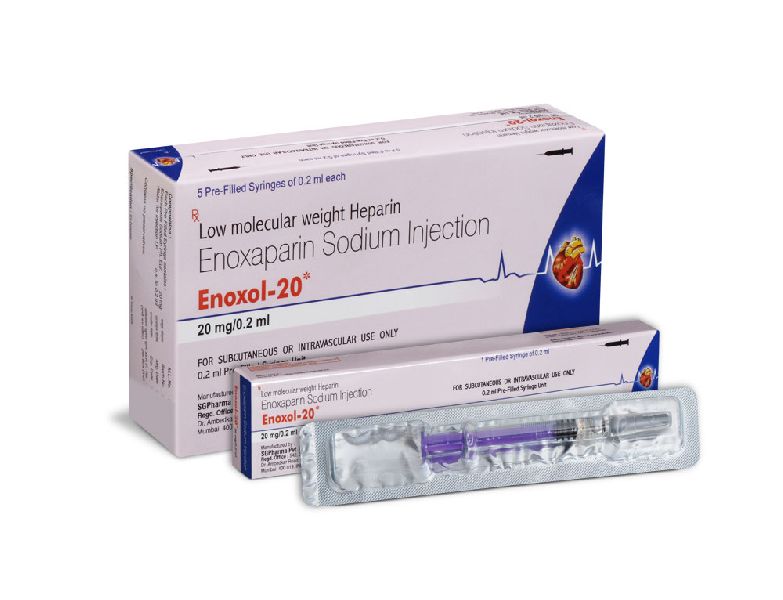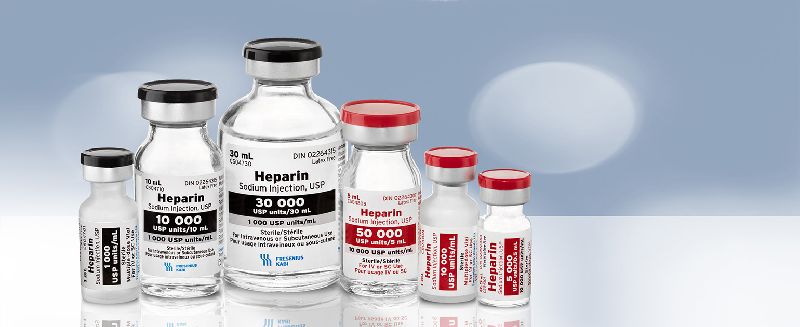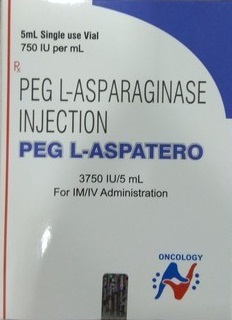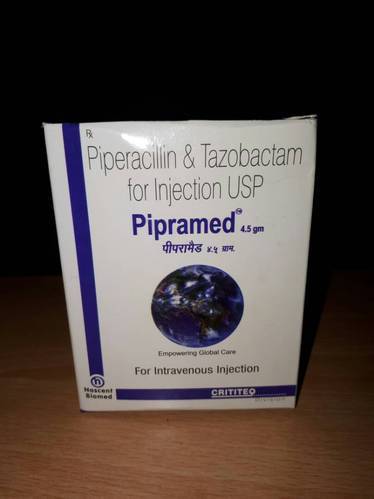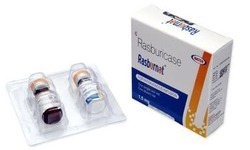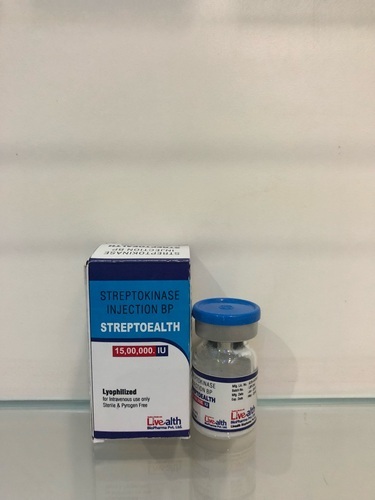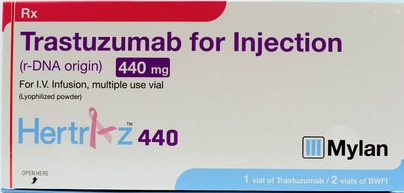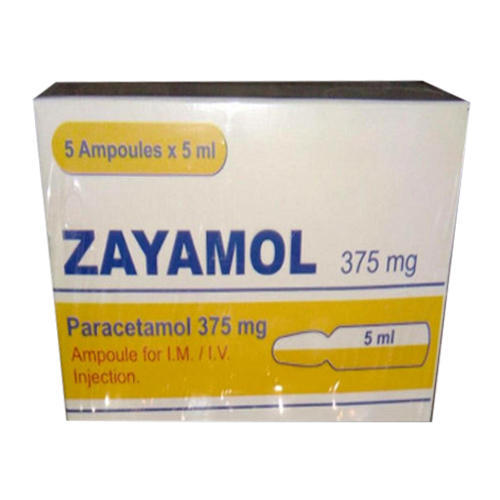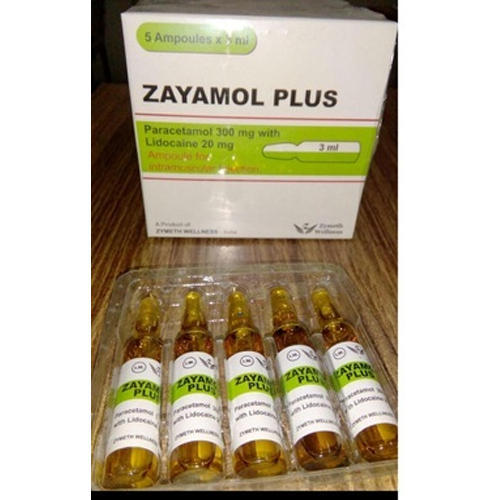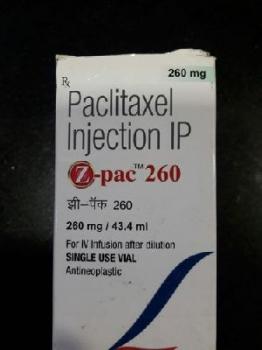-
dhiraj@gjpharmaceutical.com -
08048771781
Pharmaceutical Injection
Leading Manufacturers, Exporters and Wholesaler of Alimta Injection, Amifostine Injection, Amoxycillin & Potassium Clavulanate Injection, Bortezomib Injection, Carboplatin Injection, Cefoperazone & Salbactum For Injection, Ceftriaxone & Sulbactam Injection, Ceftriaxone & Tazobactam Injection, Cyclophosphamide Injection, Diclofenac Sodium Injection, Epirubicin Hydrochloride Injection, Gemcitabine Injection, Glutax 5 GS Injection, Heparin Enoxaparin Sodium Injection, Heparin Sodium Injection, PEG L Asparaginase Injection, Piperacillin & Tazobactum For Injection, Rasburicase Injection, Streptokinase Injection, Trastuzumab Injection, Zayamol Paracetamol Injection, Zayamol Plus Injection and Paclitaxel Injection from Thane.
| Business Type | Manufacturer, Exporter, Supplier |
| Form Of Medicine | Liquid |
| Type of Medicine | Allopathic |
| Storage | Store in cool and dry place |
| Grade | Medicine Grade |
| Dosage Strength | 500 mg |
| Feature | Perfect Composition |
| Best Before | 3 Years from the date of Manufacturing |
Preferred Buyer From
| Location | All Countries Except India |
| Business Type | Manufacturer, Exporter, Supplier |
| Pack Size | 300mg, 500mg Single Vial (Lyophilised) |
| Brand Name | GJ |
| Form Of Medicine | Injection |
| Grade | Medicine Grade |
| Storage | Store in cool and dry place |
| Best Before | 6 months from Manufacture date |
Preferred Buyer From
| Location | All Countries Except India |
Uses: Amifostine is used to decrease the risk of kidney problems caused by treatment with a certain anti-cancer drug (cisplatin). It is also used to help prevent a certain side effect (dry mouth) caused by radiation treatment for head and neck cancer. Amifostine is thought to work by preventing certain chemicals from damaging healthy cells. It may also help repair cells damaged by cisplatin or radiation treatment.
How to Use: This medication is given by injection into a vein by a health care professional, usually 15 to 30 minutes before cancer treatment or as directed by your doctor. Dosage is based on your medical condition, body size, and response to treatment.To decrease the risk of a certain side effect (low blood pressure), your doctor may direct you to lie down while receiving this medication. Also, if you are taking blood pressure medication, your doctor may direct you to stop taking it for 1 day before receiving this drug. Be sure to ask your doctor when to restart blood pressure medication.To decrease the risk of side effects (e.g., low blood pressure), drink plenty of fluids while using this medication unless otherwise directed by your doctor.
Side Effects: Flushing, chills, unusual feelings of warmth/coldness, dizziness, or drowsiness may occur. Nausea and vomiting occur frequently and can be severe. Your doctor may prescribe medication to prevent or relieve nausea and vomiting. Eating several small meals, not eating before treatment, or limiting activity may help lessen some of these effects. If these effects persist or worsen, tell your doctor or pharmacist promptly.Remember that your doctor has prescribed this medication because he or she has judged that the benefit to you is greater than the risk of side effects. Many people using this medication do not have serious side effects.Tell your doctor immediately if any of these unlikely but serious side effects occur: fainting, fast/slow/irregular heartbeat, seizure.A very serious allergic reaction to this drug is rare. However, seek immediate medical attention if you notice any symptoms of a serious allergic reaction, including: fever, rash, itching/swelling (especially of the face/tongue/throat), severe dizziness, trouble breathing.This is not a complete list of possible side effects. If you notice other effects not listed above, contact your doctor or pharmacist.In the US -Call your doctor for medical advice about side effects. You may report side effects to FDA at 1-800-FDA-1088.In Canada - Call your doctor for medical advice about side effects. You may report side effects to Health Canada at 1-866-234-2345.
Precautions: Before receiving amifostine, tell your doctor or pharmacist if you are allergic to it; or if you have any other allergies. This product may contain inactive ingredients, which can cause allergic reactions or other problems. Talk to your pharmacist for more details.Before using this medication, tell your doctor or pharmacist your medical history, especially of: low/high blood pressure, heart disease (e.g., irregular heartbeat, congestive heart failure), kidney disease, previous stroke.This drug may make you dizzy or drowsy. Do not drive, use machinery, or do any activity that requires alertness until you are sure you can perform such activities safely. Limit alcoholic beverages.During pregnancy, this medication should be used only when clearly needed. Discuss the risks and benefits with your doctor.It is not known whether this medication passes into breast milk. Consult your doctor before breast-feeding.
Overdose: If overdose is suspected, contact a poison control center or emergency room immediately. US residents can call their local poison control center at 1-800-222-1222. Canada residents can call a provincial poison control center.
Notes: Laboratory and/or medical tests (e.g., blood pressure, serum calcium levels) should be performed periodically to monitor your progress or check for side effects. Consult your doctor for more details.
Missed Dose: For the best possible benefit, it is important to receive each scheduled dose of this medication as directed. If you miss a dose, contact your doctor to establish a new dosing schedule.
Storage: Not applicable. This medication is given in a hospital or clinic and will not be stored at home.
| Business Type | Manufacturer, Exporter, Supplier |
| Form Of Medicine | Liquid |
| Type of Medicine | Allopathic |
| Grade | Medicine Grade |
| Storage | Store in cool and dry place |
| Feature | Perfect Composition |
| Best Before | 3 Years from the date of Manufacturing |
Preferred Buyer From
| Location | All Countries Except India |
| Business Type | Manufacturer, Exporter, Supplier |
| Dose | 1mg |
| Pack Size | Single vial |
| Brand Name | GJ |
| Best Before | 6 months from Manufacture date |
| Form Of Medicine | Injection |
| Storage | Store in cool and dry place |
Preferred Buyer From
| Location | All Countries Except India |
Uses
- This medication is used to treat certain types of cancer (such as multiple myeloma, mantle cell lymphoma).
- It works by slowing or stopping the growth of cancer cells.How to use Bortezomib Solution, Reconstituted (Recon Soln)
- This medication is given by injection into a vein or under the skin by a health care professional. If you are receiving this medication under the skin, make sure that the injection site is changed each time to lessen injury under the skin. The dosage is based on your body size, medical condition, laboratory tests, and response to treatment.
Side Effects
- Dizziness, lightheadedness, nausea, vomiting, loss of appetite, diarrhea, constipation, tiredness, weakness, or pain/redness at the injection site may occur. Nausea, vomiting, and diarrhea can be severe. In some cases, your doctor may prescribe medication to prevent or relieve nausea, vomiting, and diarrhea. If any of these effects last or get worse, tell your doctor or pharmacist promptly.
- To reduce the risk of dizziness and lightheadedness, get up slowly when rising from a sitting or lying position.
Precautions : Before using this medication, tell your doctor or pharmacist if you are allergic to it; or if you have any other allergies. This product may contain inactive ingredients (such as boron, mannitol), which can cause allergic reactions or other problems. Talk to your pharmacist for more details.
Overdose : If someone has overdosed and has serious symptoms such as passing out or trouble breathing, call 911. Otherwise, call a poison control center right away. US residents can call their local poison control center at 1-800-222-1222. Canada residents can call a provincial poison control center. Symptoms of overdose may include: severe dizziness, fainting, or easy bleeding/bruising.
Notes : Lab and/or medical tests (such as complete blood count) should be done while you are using this medication. Keep all medical and lab appointments. Consult your doctor for more details.
| Business Type | Manufacturer, Exporter, Supplier |
| Grade | Medicine Grade |
| Dose | Carboplatin injection 450mg in 45ml , 150mg in 15ml |
| Pack Size | Single vial |
| Brand Name | GJ |
| Form Of Medicine | Injection |
| Storage | Store in cool and dry place |
Preferred Buyer From
| Location | All Countries Except India |
Warning : Carboplatin can cause severe blood disorders (e.g., anemia, bone marrow suppression) that can result in infection and bleeding problems. Your risk of developing these problems increases with higher doses or longer treatment with carboplatin. Also, an unlikely but very serious allergic reaction to this drug may occur within minutes of receiving a dose. Tell your doctor immediately if you develop any of the following symptoms: easy bruising/bleeding, signs of infection (e.g., persistent sore throat, fever), unusual tiredness, rash, itching, swelling, severe dizziness, or trouble breathing. Vomiting is a common side effect of this medication. See the Side Effects section for more information.
Uses : Carboplatin is used to treat various types of cancer. It is a chemotherapy drug that contains platinum. It is used alone or in combination with other medications to slow or stop cancer cell growth.
How to Use: Carboplatin is usually given by infusion into a vein (intravenously-IV) over at least 15 minutes by a healthcare professional.The dosage is based on your medical condition, body size, and response to therapy. In general, courses of carboplatin treatment should not be given more often than once every 4 weeks. Consult your doctor or pharmacist for more details.
Side Effects : Stomach pain, body aches/pain, diarrhea, constipation, weakness, nausea, and vomiting may occur. Nausea and vomiting can be severe in some patients but usually go away within 24 hours of treatment. Drug therapy may be needed to prevent or relieve nausea and vomiting. Not eating before your treatment may help relieve vomiting. Changes in diet such as eating several small meals or limiting activity may help lessen some of these effects. If any of these effects persist or worsen, notify your doctor or pharmacist promptly.Temporary hair loss may occur. Normal hair growth should return after treatment has ended.Remember that your doctor has prescribed this medication because he or she has judged that the benefit to you is greater than the risk of side effects. Many people using this medication do not have serious side effects.Tell your doctor right away if you have any serious side effects, including: numbness or tingling in the hands/feet, mouth sores, yellowing eyes/skin, dark urine, unusual tiredness, change in the amount of urine, pain/swelling/redness at the injection site, hearing problems (e.g., ringing in the ears, hearing loss), easy bruising/bleeding, blood in the urine, black/bloody stools, fast/irregular heartbeat.Rarely, temporary vision loss may occur with high doses of carboplatin
Precautions : Before using carboplatin, tell your doctor or pharmacist if you are allergic to it, or to cisplatin; or if you have any other allergies. This product may contain inactive ingredients, which can cause allergic reactions or other problems. Talk to your pharmacist for more details.This medication should not be used if you have certain medical conditions. Before using this medicine, consult your doctor or pharmacist if you have: decreased bone marrow function/blood cell disorders (e.g., anemia, leukopenia, thrombocytopenia).Before using this medication, tell your doctor or pharmacist your medical history, especially of: kidney problems, mineral imbalance (low blood levels of sodium, potassium, magnesium, calcium).Do not have immunizations/vaccinations without the consent of your doctor, and avoid contact with people who have recently received oral polio vaccine
Overdose: If overdose is suspected, contact a poison control center or emergency room immediately. US residents can call their local poison control center at 1-800-222-1222. Canada residents can call a provincial poison control center.
Notes : Laboratory and/or medical tests (e.g., complete blood counts, kidney function tests, blood mineral levels) should be performed to monitor your progress or check for side effects. Consult your doctor for more details.
Missed Dose: For the best possible benefit, it is important to receive each scheduled dose of this medication as directed. If you miss a dose, contact your doctor or pharmacist immediately to establish a new dosing schedule.
Storage: Not applicable. This medication is given in a clinic and will not be stored at home.MEDICAL ALERT: Your condition can cause complications in a medical emergency. For information about enrolling in MedicAlert, call 1-888-633-4298 (US) or 1-800-668-1507 (Canada).
| Business Type | Manufacturer, Exporter, Supplier |
| Purity | 99% |
| Storage | Store in a cool |
| Shelf life | 2 years |
| Medicine Type | Allopathic |
| Pack Size | 1.5g |
| Salt Name | Cefoperazone & Sulbactam for Injection |
| Form | Injection |
| Type of Medicine | Allopathic |
| Dosage Form | As Per Doctor Prescription |
Preferred Buyer From
| Location | All Countries Except India |
| Business Type | Manufacturer, Exporter, Supplier |
| Type | Antibacterial Drug |
| Usage | Clinical |
| Dosage Form | Injection |
| Pack Size | 10 Ml Clear |
| Generic Name | Ceftriaxone Salbactum Injection |
| Strength | 2000mg |
| Pack | Single vial |
| Generic name | Ceftriaxone tazobactum |
Preferred Buyer From
| Location | All Countries Except India |
| Business Type | Manufacturer, Exporter, Supplier |
| Generic Name | Piperacillin tazobactum Injection |
| Dosage Form | As Per Doctor Prescription |
| Type | Finished Product |
| Strength | 3375mg |
| Usage | Clinical, Hospital |
| Capacity (mg) | 40 mg |
| Form | Liquid |
| Medicine Type | Allopathic |
| Packaging Type | Glass Bottle |
Preferred Buyer From
| Location | All Countries Except India |
| Business Type | Manufacturer, Exporter, Supplier |
| Dose | 1gm |
| Packaging Size | Single Vial |
| Brand Name | GJ |
| Storage | Store in cool and dry place |
| Form Of Medicine | Injection |
| Best Before | 6 months from Manufacture date |
Preferred Buyer From
| Location | All Countries Except India |
What side effects can this medication cause?
Cyclophosphamide may cause side effects. Tell your doctor if any of these symptoms are severe or do not go away:
- nausea
- vomiting
- loss of appetite or weight
- abdominal pain
- diarrhea
- hair loss
- sores on the mouth or tongue
- changes in skin color
- changes in color or growth of finger or toe nails
| Business Type | Manufacturer, Exporter, Supplier |
| CAS No. | 15307-86-5 |
| Other Names | Potassium salt |
| Medicine Type | Allopathic |
| Form | Capsules |
| Dose | As per doctor prescription |
| Packaging | Packed in strips |
| Formula | C14H11Cl2NO2 |
| Storage | Store in cool and dry place |
| Best Before | 12 Months from Manufacture date |
Preferred Buyer From
| Location | All Countries Except India |
| Business Type | Manufacturer, Exporter, Supplier |
| Dose | 50mg |
| Packaging Size | Single Vial |
| Best Before | 6 months from Manufacture date |
| Form Of Medicine | Injection |
| Grade | Medicine Grade |
| Storage | Store in cool and dry place |
Preferred Buyer From
| Location | All Countries Except India |
How does this medication work? What will it do for me?
Epirubicin belongs to the group of cancer-fighting medications known as antineoplastics, and specifically to the family of antineoplastics called anthracyclines. It is used alone or in combination with other antineoplastics to treat many types of cancer including breast cancer, lung cancer, ovary cancer, stomach cancer, and lymphoma.Epirubicin prevents the growth of cancer cells by interfering with the genetic material DNA, which is necessary for reproduction of cells.
Who should NOT take this medication?
Epirubicin should not be given to anyone who:
- is allergic to epirubicin or to any of the ingredients of the medication
- is allergic to other anthracycline-type medications such as doxorubicin
- is breast-feeding
- has had a recent heart attack
- has heart failure
- has irregular heart rhythm
- has low blood cell counts caused by previous treatment with cancer medications or radiation therapy
- has previously been treated with maximum allowable lifetime doses of any anthracycline medication (e.g., doxorubicin, daunorubicin, epirubicin, idarubicin) or mitoxantrone
- has severe heart disease
- has severe liver impairment
What side effects are possible with this medication?
Many medications can cause side effects. A side effect is an unwanted response to a medication when it is taken in normal doses. Side effects can be mild or severe, temporary or permanent. The side effects listed below are not experienced by everyone who takes this medication. If you are concerned about side effects, discuss the risks and benefits of this medication with your doctor.The following side effects have been reported by at least 1% of people taking this medication. Many of these side effects can be managed, and some may go away on their own over time.
Contact your doctor if you experience these side effects and they are severe or bothersome. Your pharmacist may be able to advise you on managing side effects.
- causes urine to turn reddish in colour (not blood) - this is normal and lasts 1 to 2 days after each dose
- darkening of soles, palms, or nails
- diarrhea
- hot flashes
- loss of appetite or weight loss
- nausea
- rash
- reduction in number of menstrual periods
- temporary total loss of hair (returns after treatments end)
- vomiting
- weakness
- weight loss
Are there any other precautions or warnings for this medication?
Anemia: This medication can reduce the number of red blood cells in the body, causing anemia. Red blood cells are responsible for carrying oxygen through the body, where it is used by the muscles and other tissues. If you develop symptoms of anemia, such as weakness, dizziness, or shortness of breath, contact your doctor.
Blood clotting: This medication can reduce the number of platelet cells in the blood. Platelets help the blood to clot, and a shortage could make you bleed more easily. Tell your doctor of any signs that your blood is not clotting as quickly. Such symptoms may include black and tarry stools, blood in the urine, easy bruising, or cuts that won't stop bleeding.
Fertility: Epirubicin can cause changes to sperm in men, possibly causing birth defects. Women may experience reduced or stopped ovulation or menstruation. In rare cases, women may experience premature menopause. Both women and men receiving epirubicin should use effective contraceptive methods.
Gout and kidney stones: Epirubicin may increase the levels of uric acid in the body, increasing the risk of developing gout or kidney stones. If you develop painful, warm, and swollen joints or difficulty with urination, contact your doctor as soon as possible. People with a history of gout or kidney stones should discuss with their doctor how this medication may affect their medical condition, how their medical condition may affect the dosing and effectiveness of this medication, and whether any special monitoring is needed.
Heart disease: Epirubicin may cause heart failure during treatment or after treatment has finished. The risk of abnormal heart rhythm, congestive heart failure, and a weakened heart (cardiomyopathy) is increased for people with preexisting heart disease. People with heart disease or an increased risk of heart disease should discuss with their doctor how this medication may affect their medical condition, how their medical condition may affect the dosing and effectiveness of this medication, and whether any special monitoring is needed.
Infection: As well as killing cancer cells, this medication can reduce the number of cells that fight infection in the body (white blood cells). Avoid contact with people with contagious infections and tell your doctor if you begin to notice signs of an infection, such as fever or chills.
| Business Type | Manufacturer, Exporter, Supplier |
| Dose | 1gm |
| Packaging Size | Single Vial |
| Best Before | 6 months from Manufacture date |
| Brand Name | GJ |
| Form Of Medicine | Injection |
| Storage | Store in cool and dry place |
Preferred Buyer From
| Location | All Countries Except India |
Why is this medication prescribed?
Gemcitabine is used in combination with other chemotherapy drugs to treat cancer of the ovaries (cancer that begins in the female reproductive organs where eggs are formed) and breast cancer that has not improved or that has worsened after treatment with other medications. Gemcitabine is used in combination with other chemotherapy drugs to treat a type of lung cancer (non-small cell lung cancer; NSCLC) that has spread to other parts of the body and cannot be treated with surgery. Gemcitabine is also used to treat cancer of the pancreas that has spread to other parts of the body and has not improved or worsened after treatment with another medication. Gemcitabine is in a class of medications called antimetabolites. It works by slowing or stopping the growth of cancer cells in your body.
How should this medicine be used?
- Gemcitabine comes as a powder to be mixed with liquid to be injected over 30 minutes intravenously (into a vein) by a doctor or nurse in a medical facility. When gemcitabine is used to treat ovarian or breast cancer, it is usually given on certain days every 3 weeks. When gemcitabine is used to treat lung cancer it is usually given on certain days every 3 or 4 weeks. When gemcitabine is used to treat cancer of pancreas it may be injected once every week. The length of treatment depends on the types of drugs you are taking, how well your body responds to them, and the type of cancer or condition you have. Your doctor may need to stop or delay your treatment if you experience certain side effects.
- Ask your pharmacist or doctor for a copy of the manufacturer's information for the patient.
Other uses for this medicine
- Gemcitabine is also sometimes used to treat bladder cancer and cancer of the biliary tract (cancer in the organs and ducts that make and store bile, the liquid made by the liver). Talk to your doctor about the risks of using this medication for your condition.
- This medication may be prescribed for other uses; ask your doctor or pharmacist for more information.
What special precautions should I follow?
- Before receiving gemcitabine,
- tell your doctor and pharmacist if you are allergic to gemcitabine, any other medications, or any of the ingredients in gemcitabine. Ask your pharmacist for a list of the ingredients.
- tell your doctor and pharmacist what other prescription and nonprescription medications, vitamins, nutritional supplements, and herbal products you are taking or plan to take.
- tell your doctor if you drink or have ever drunk large amounts of alcohol or if you have or ever had liver disease, including hepatitis, or kidney disease.
| Business Type | Manufacturer, Exporter, Supplier |
| Generic Name | Fluorouracil |
| Dosage Form | Injection |
| Type | Finished Product |
| Strength | 250/500 MG |
| Pack | Ampule |
| Best Before | 24 months from Manufacture date |
| Form Of Medicine | Liquid |
| Type of Medicine | Allopathic |
| Grade | Medicine Grade |
| Storage | Store in cool and dry place |
Preferred Buyer From
| Location | All Countries Except India |
| Business Type | Manufacturer, Exporter, Supplier |
| Brand Name | GJ |
| Dose | 40mg per 0.4ml PFS |
| Packaging Size | 1 Prefilled Syringe |
| Packaging Type | 1 Prefilled Syringe |
| Best Before | 6 months from Manufacture date |
| Form Of Medicine | Injection |
| Storage | Store in cool and dry place |
Preferred Buyer From
| Location | All Countries Except India |
Warning:
Epidural or spinal hematomas may occur in patients who are anticoagulated with low molecular weight heparins (LMWH) or heparinoids and are receiving neuraxial anesthesia or undergoing spinal puncture. These hematomas may result in long-term or permanent paralysis. Consider these risks when scheduling patients for spinal procedures. Factors that can increase the risk of developing epidural or spinal hematomas in these patients include:
- Use of indwelling epidural catheters
- Concomitant use of other drugs that affect hemostasis, such as non-steroidal anti-inflammatory drugs (NSAIDs), platelet inhibitors, other anticoagulants.
- A history of traumatic or repeated epidural or spinal punctures
- A history of spinal deformity or spinal surgery
Description: Lovenox is a sterile aqueous solution containing enoxaparin sodium, a low molecular weight heparin. The pH of the injection is 5.5 to 7.5. Enoxaparin sodium is obtained by alkaline depolymerization of heparin benzyl ester derived from porcine intestinal mucosa. Its structure is characterized by a 2-O-sulfo-4-enepyranosuronic acid group at the non-reducing end and a 2-N,6-O-disulfo-D-glucosamine at the reducing end of the chain. About 20% (ranging between 15% and 25%) of the enoxaparin structure contains an 1,6 anhydro derivative on the reducing end of the polysaccharide chain. The drug substance is the sodium salt. The average molecular weight is about 4500 daltons.
Indications and Dosage:
Indications
Prophylaxis of Deep Vein Thrombosis
Lovenox® is indicated for the prophylaxis of deep vein thrombosis (DVT), which may lead to pulmonary embolism (PE):
- in patients undergoing abdominal surgery who are at risk for thromboembolic complications [see Clinical Studies].
- in patients undergoing hip replacement surgery, during and following hospitalization.
- in patients undergoing knee replacement surgery.
- in medical patients who are at risk for thromboembolic complications due to severely restricted mobility during acute illness.
Storage
- Store at 25°C (77°F); excursions permitted to 15-30°C (59-86°F) [see USP Controlled Room Temperature].
- Do not store the multiple-dose vials for more than 28 days after the first use.
- Keep out of the reach of children.
| Business Type | Manufacturer, Exporter, Supplier |
| Brand Name | GJ |
| Dose | 5000 IU in 5ml |
| Packaging Size | 5 vials in carton |
| Packaging Type | 5 vials in carton |
| Storage | Store in cool and dry place |
| Form Of Medicine | Injection |
| Best Before | 6 months from Manufacture date |
Preferred Buyer From
| Location | All Countries Except India |
Uses : This medication is used to prevent and treat blood clots. It may be used to prevent and treat blood clots in the lungs/legs (including in patients with atrial fibrillation). It may be used to treat certain blood clotting disorders. It may also be used to prevent blood clots after surgery, during dialysis, during blood transfusions, when collecting blood samples, or when a person is unable to move for a long time. Heparin helps to keep blood flowing smoothly by making a certain natural substance in your body (anti-clotting protein) work better. It is known as an anticoagulant.
Side Effects
- Mild pain/redness/irritation at the injection site may occur. If any of these effects persist or worsen, tell your doctor or pharmacist promptly.
- Remember that your doctor has prescribed this medication because he or she has judged that the benefit to you is greater than the risk of side effects. Many people using this medication do not have serious side effects.
- Tell your doctor right away if you have any serious side effects, including: swelling at injection site, bone pain, easily broken bones.
- This medication can cause bleeding if its effect on your clotting proteins is too much.
Precautions
- Before using heparin, tell your doctor or pharmacist if you are allergic to it; or to pork products; or if you have any other allergies. This product may contain inactive ingredients (such as benzyl alcohol found in some brands), which can cause allergic reactions or other problems. Talk to your pharmacist for more details.
- Before using this medication, tell your doctor or pharmacist your medical history, especially of: bleeding/blood problems (such as low platelet count, hemophilia), high blood pressure (hypertension), heart problems (such as infection of the heart, heart attack), recent surgery/procedure, cancer, stomach/intestinal ulcers or tube drainage, liver disease.
Interaction : Drug interactions may change how your medications work or increase your risk for serious side effects. This document does not contain all possible drug interactions. Keep a list of all the products you use (including prescription/nonprescription drugs and herbal products) and share it with your doctor and pharmacist. Do not start, stop, or change the dosage of any medicines without your doctor's approval.Some products that may interact with this drug include: mifepristone, oritavancin, telavancin.
Overdose:If someone has overdosed and has serious symptoms such as passing out or trouble breathing, call 911. Otherwise, call a poison control center right away. US residents can call their local poison control center at 1-800-222-1222. Canada residents can call a provincial poison control center. Symptoms of overdose may include: easy/unusual bruising, easy/unusual bleeding such as persistent nosebleeds, blood in urine, black stools.
Notes
Do not share this medication with others.
| Business Type | Manufacturer, Exporter, Supplier |
| Brand Name | GJ |
| Best Before | 6 months from Manufacture date |
| Form Of Medicine | Injection |
| Grade | Medicine Grade |
| Storage | Store in cool and dry place |
| Packaging Size | 5 ml |
Preferred Buyer From
| Location | All Countries Except India |
Warnings:
- Contraindications
- Hypersensitivity
- History of (with prior L-asparaginase treatment): pancreatitis; hemorrhagic events; serious thrombosis
Cautions:
- No more than 2 mL should be administered at any one injection site
- Anaphylaxis or serious allergic reactions may occur, monitor patient for 1 hr after administration; discontinue with serious allergic reactions
- Glucose intolerance reported (irreversible in some cases); monitor serum glucose
- Hepatotoxicity and abnormal liver function, including elevations of AST (SGOT), ALT (SGPT), alkaline phosphatase, bilirubin (direct and indirect), and depression of serum albumin, and plasma fibrinogen may occur; monitor
- Discontinue if pancreatitis occurs; evaluate patients with abdominal pain for pancreatitis
- Serious thrombotic events, including sagittal sinus thrombosis reported; discontinue if this occurs
- Increased prothrombin time, increased PTT and hypofibrinogenemia may occur; monitor for coagulopathy
Pregnancy & Lactation
- Pregnancy Category: C
- Lactation: not known if excreted in breast milk
Pregnancy Categories
- A:Generally acceptable. Controlled studies in pregnant women show no evidence of fetal risk.
- B:May be acceptable. Either animal studies show no risk but human studies not available or animal studies showed minor risks and human studies done and showed no risk.
- C:Use with caution if benefits outweigh risks. Animal studies show risk and human studies not available or neither animal nor human studies done.
- D:Use in LIFE-THREATENING emergencies when no safer drug available. Positive evidence of human fetal risk.
- X:Do not use in pregnancy. Risks involved outweigh potential benefits. Safer alternatives exist.
Pharmacology
- Mechanism of Action
- Modified version of L-asparaginase depletes asparagine, the aminoacid required for protein synthesis, and in turn kills leukemic cells
Pharmacokinetics
- Half-Life: 5-5.6 days
- Onset: Asparagine depleted within 4 days (IM)
- Duration: 21 days (IM); 2-4 weeks (IV in asparaginase naive adults)
- Vd: 1.5 L/m² (IM in children); 2.4 L/m² (IV in adults)
- Metabolism: Systemically
- Peak plasma time: 3-4 days (IM)
- Excretion: Urine (trace amounts)
Storage
- Refrigerate
- Do not use if cloudy or if precipitate is present
- Do not freeze
| Business Type | Manufacturer, Exporter, Supplier |
| Best Before | 3 Years from the date of Manufacturing |
| Dosage | As per doctors prescription |
| Feature | Perfect Composition |
| Storage | Store in cool and dry place |
| Grade | Medicine Grade |
| Type of Medicine | Allopathic |
Preferred Buyer From
| Location | All Countries Except India |
| Business Type | Manufacturer, Exporter, Supplier |
| Form Of Medicine | Liquid |
| Type of Medicine | Allopathic |
| Grade | Medicine Grade |
| Storage | Store in cool and dry place |
| Feature | Perfect Composition |
| Dosage | As per doctors prescription |
Preferred Buyer From
| Location | All Countries Except India |
| Business Type | Manufacturer, Exporter, Supplier |
| Brand Name | GJ |
| Dose | 1500000 IU |
| Packaging Size | Single vial |
| ]Storage | Store in cool and dry place |
| Best Before | 6 months from Manufacture date |
| Form Of Medicine | Injection |
Preferred Buyer From
| Location | All Countries Except India |
Description:
Streptase, Streptokinase, is a sterile, purified preparation of a bacterial protein elaborated by group C (beta) -hemolytic streptococci. It is supplied as a lyophilized white powder containing 25 mg cross-linked gelatin polypeptides, 25 mg sodium L-glutamate, sodium hydroxide to adjust pH, and 100 mg Albumin (Human) per vial or infusion bottle as stabilizers. The preparation contains no preservatives and is intended for intravenous and intracoronary administration.
Indications:
Acute Evolving Transmural Myocardial Infarction: Streptase, Streptokinase, is indicated for use in the management of acute myocardial infarction (AMI) in adults, for the lysis of intracoronary thrombi, the improvement of ventricular function, and the reduction of mortality associated with AMI, when administered by either the intravenous or the intracoronary route, as well as for the reduction of infarct size and congestive heart failure associated with AMI when administered by the intravenous route. Earlier administration of Streptokinase is correlated with greater clinical benefit. (See CLINICAL PHARMACOLOGY.)
- Pulmonary Embolism: Streptase, Streptokinase, is indicated for the lysis of objectively diagnosed (angiography or lung scan) pulmonary emboli, involving obstruction of blood flow to a lobe or multiple segments, with or without unstable hemodynamics.
- Deep Vein Thrombosis: Streptase, Streptokinase, is indicated for the lysis of objectively diagnosed (preferably ascending venography), acute, extensive thrombi of the deep veins such as those involving the popliteal and more proximal vessels.
- Arterial Thrombosis or Embolism: Streptase, Streptokinase, is indicated for the lysis of acute arterial thrombi and emboli. Streptokinase is not indicated for arterial emboli originating from the left side of the heart due to the risk of new embolic phenomena such as cerebral embolism.
- Occlusion of Arteriovenous Cannulae: Streptase, Streptokinase, is indicated as an alternative to surgical revision for clearing totally or partially occluded arteriovenous cannulae when acceptable flow cannot be achieved.
Dosage and Administration : Acute Evolving Transmural Myocardial Infarction: Administer Streptokinase as soon as possible after onset of symptoms. The greatest benefit in mortality reduction was observed when Streptokinase was administered within four hours, but statistically significant benefit has been reported up to 24 hours (see CLINICAL PHARMACOLOGY ).
Warnings:
Bleeding: Following intravenous high-dose brief-duration Streptokinase therapy in acute myocardial infarction, severe bleeding complications requiring transfusion are extremely rare (0.3-0.5%), and combined therapy with low dose aspirin does not appear to increase the risk of major bleeding. The addition of aspirin to Streptokinase may cause a slight increase in the risk of minor bleeding (3.1% without aspirin vs. 3.9% with) (2) .
- Streptokinase will cause lysis of hemostatic fibrin deposits such as those occurring at sites of needle punctures, particularly when infused over several hours, and bleeding may occur from such sites. In order to minimize the risk of bleeding during treatment with Streptokinase, venipunctures and physical handling of the patient should be performed carefully and as infrequently as possible, and intramuscular injections must be avoided.
- Should an arterial puncture be necessary during intravenous therapy, upper extremity vessels are preferable. Pressure should be applied for at least 30 minutes, a pressure dressing applied, and the puncture site checked frequently for evidence of bleeding.
- In the following conditions the risks of therapy may be increased and should be weighed against the anticipated benefits.
- Recent (within 10 days) major surgery, obstetrical delivery, organ biopsy, previous puncture of noncompressible vessels
- Recent (within 10 days) serious gastrointestinal bleeding
- Recent (within 10 days) trauma including cardiopulmonary resuscitation
- Hypertension: systolic BP >180 mm Hg and/or diastolic BP >110 mm Hg
- High likelihood of left heart thrombus, e.g., mitral stenosis with atrial fibrillation
- Subacute bacterial endocarditis
- Hemostatic defects including those secondary to severe hepatic or renal disease
- Pregnancy
- Age >75 years
- Cerebrovascular disease
| Business Type | Manufacturer, Exporter, Supplier |
| Dose | 440mg |
| Brand Name | GJ |
| Pack Size | Single vial |
| Best Before | 6 months from Manufacture date |
| Form Of Medicine | Injection |
| Storage | Store in cool and dry place |
Preferred Buyer From
| Location | All Countries Except India |
- tell your doctor and pharmacist if you are allergic to trastuzumab, medications made from Chinese hamster ovary cell protein, any other medications, or benzyl alcohol. Ask your pharmacist if you are not sure if a medication you are allergic to is made from Chinese hamster ovary cell protein or contains benzyl alcohol.
- tell your doctor and pharmacist what prescription and nonprescription medications, vitamins, nutritional supplements, and herbal products you are taking or plan to take. Be sure to mention the medications listed in the IMPORTANT WARNING section and paclitaxel (Abraxane, Taxol). Your doctor may need to change the doses of your medications or monitor you carefully for side effects.
- tell your doctor if you have or have ever had any of the conditions mentioned in the IMPORTANT WARNING section or any other medical condition.
- tell your doctor if you are breast-feeding.
- if you are having surgery, including dental surgery, tell the doctor or dentist that you are receiving trastuzumab injection.
- diarrhea
- constipation
- stomach pain
- heartburn
- loss of appetite
- back, bone, joint, or muscle pain
- difficulty falling asleep or staying asleep
- hot flushes
- numbness, burning, or tingling in the arms, hands, feet, or legs
- changes in the appearance of nails
- acne
- depression
In case of overdose, call the poison control helpline at 1-800-222-1222. Information is also available online at https://www.poisonhelp.org/help. If the victim has collapsed, had a seizure, has trouble breathing, or can't be awakened, immediately call emergency services at 911.
| Business Type | Manufacturer, Exporter, Supplier |
| Type | Injection |
| Dosage Form | Injection |
| Grade Standard | Medicine |
| Storage | Cool And Dry Place |
| Medicine Type | Allopathic |
| Form | Liquid |
| Packaging Size | 100ml |
| Packaging Type | Plastic Bottle |
Preferred Buyer From
| Location | All Countries Except India |
| Business Type | Manufacturer, Exporter, Supplier |
| Best Before | 3 Years from the date of Manufacturing |
| Dosage | As per doctors prescription |
| Feature | Perfect Composition |
| Grade | Medicine Grade |
| Type of Medicine | Allopathic |
| Form Of Medicine | Liquid |
Preferred Buyer From
| Location | All Countries Except India |
| Business Type | Manufacturer, Exporter, Supplier |
| Brand Name | GJ |
| Dose | USP 300mg / 50 ml |
| Grade | Medicine Grade |
| Storage | Store in cool and dry place |
| Form Of Medicine | Injection |
| Best Before | 6 months from Manufacture date |
Preferred Buyer From
| Location | All Countries Except India |
Description :
- Paclitaxel Injection is a clear, colorless to slightly yellow viscous solution. It is supplied as anonaqueous solution intended for dilution with a suitable parenteral fluid prior to intravenous infusion. Paclitaxel is available in 30 mg (5 mL), 100 mg (16.7 mL), and 300 mg (50 mL) multidose vials. Each mL of sterile nonpyrogenic solution contains 6 mg paclitaxel, 527 mg of polyoxyl 35 castor oil, NF, 2 mg of anhydrous citric acid, USP and 49.7% (v/v) dehydrated alcohol, USP.
- Paclitaxel is a natural product with antitumor activity. Paclitaxel is obtained via a semi-synthetic process from Taxus baccata. The chemical name for paclitaxel is 5β, 20-Epoxy-1,2α,4,7β,10β,13α- hexahydroxytax-11-en-9-one 4,10-diacetate 2-benzoate 13-ester with (2R,3S)-N-benzoyl-3- phenylisoserine
WARNING
- TAXOL® (paclitaxel) should be administered under the supervision of a physician experienced in the use of cancer chemotherapeutic agents. Appropriate management of complications is possible only when adequate diagnostic and treatment facilities are readily available.
- Anaphylaxis and severe hypersensitivity reactions characterized by dyspnea and hypotension requiring treatment, angioedema, and generalized urticaria have occurred in 2 to 4% of patients receiving TAXOL in clinical trials. Fatal reactions have occurred in patients despite premedication. All patients should be pretreated with corticosteroids, diphenhydramine, and H2 antagonists.Patients who experience severe hypersensitivity reactions to TAXOL should not be rechallenged with the drug.
Indications:
- Paclitaxel Injection is indicated as first-line and subsequent therapy for the treatment of advanced carcinoma of the ovary. As first- line therapy, paclitaxel is indicated in combination with cisplatin.
- Paclitaxel Injection is indicated for the adjuvant treatment of node-positive breast cancer administered sequentially to standard doxorubicin-containing combination chemotherapy. In the clinical trial, there was an overall favorable effect on disease-free and overall survival in the total population of patients with receptor-positive and receptor-negative tumors, but the benefit has been specifically demonstrated by available data (median follow-up 30 months) only in the patients with estrogen and progesterone receptor negative tumors.
- Paclitaxel Injection is indicated for the treatment of breast cancer after failure of combination chemotherapy for metastatic disease or relapse within 6 months of adjuvant chemotherapy. Prior therapy should have included an anthracycline unless clinically contraindicated.
Dosage and Administration
Note:
- Contact of the undiluted concentrate with plasticized PVC equipment or devices used to prepare solutions for infusion is not recommended. In order to minimize patient exposure to the plasticizer DEHP [di-(2- ethylhexyl)phthalate], which may be leached from PVC infusion bags or sets, diluted paclitaxel injection solutions should be stored in bottles (glass, polypropylene) or plastic bags (polypropylene, polyolefin) and administered through polyethylene-lined administration sets.
- All patients should be premedicated prior to paclitaxel injection administration in order to prevent severe hypersensitivity reactions. Such premedication may consist of dexamethasone 20 mg PO administered approximately 12 and 6 hours before paclitaxel injection, diphenhydramine (or its equivalent) 50 mg IV 30 to 60 minutes prior to paclitaxel injection, and cimetidine (300 mg) or ranitidine (50 mg) IV 30 to 60 minutes before paclitaxel injection.
Storage : Stored at 20° to 25°C (68° to 77°F). [See USP Controlled Room Temperature.] Protect from light. Retain in original carton.
